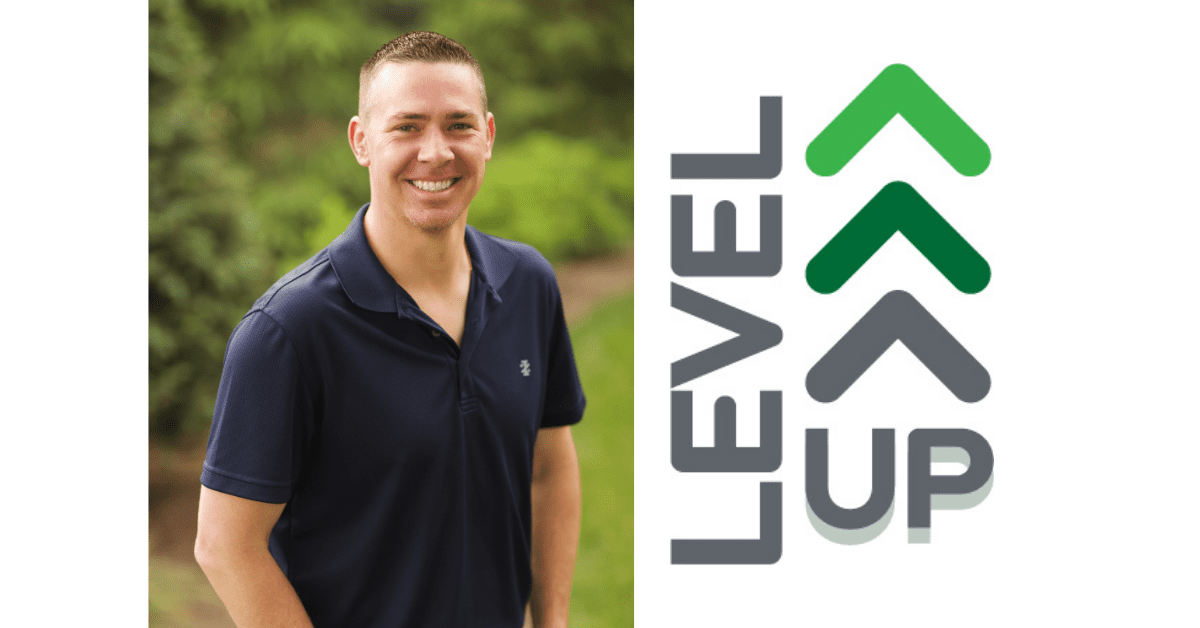
Our Level Up series shares the strategies that help landscape and lawn care companies get to the next level.
In high school, Doug McDuff knew he didn’t want to work inside. He wanted to work outdoors and even considered becoming a park ranger before his guidance counselor suggested he check out the Stockbridge School of Agriculture at UMass Amherst.
McDuff ended up majoring in landscape contracting and fell in love with the industry. He worked for Hartney Graymont while in school and for two years after graduating. He says it was a great learning experience but he wanted to sell as he enjoyed interacting with customers.
He talked to his manager, who said he was too young and told him to stay in the field and keep learning the ropes.
“Being young and ambitious I didn’t like that answer so I left the job and started up my own company,” McDuff says.
Striking out on his own, he started Landscape America, based in Wrentham, Massachusetts, in 2006. He also convinced his brother Andy to join the company with him.
Despite launching the business two years before the Great Recession, McDuff says ignorance was bliss and they grew all the same.
“We had no idea we were in a recession really other than from the media because we were just doing our best to grow and we did,” McDuff says. “We grew right through it. In 2007, our first full year, we did $400,000. In 2008, we did $600,000. In 2009, we did a million so we grew right through the recession and it didn’t really affect us whatsoever.”
Now, they are at $7 million in revenue and Landscape America’s current company goal is to reach $12.5 million by 2025. McDuff says after reaching that, their next goal is to make $20 million in another five years.
Shifting Focus
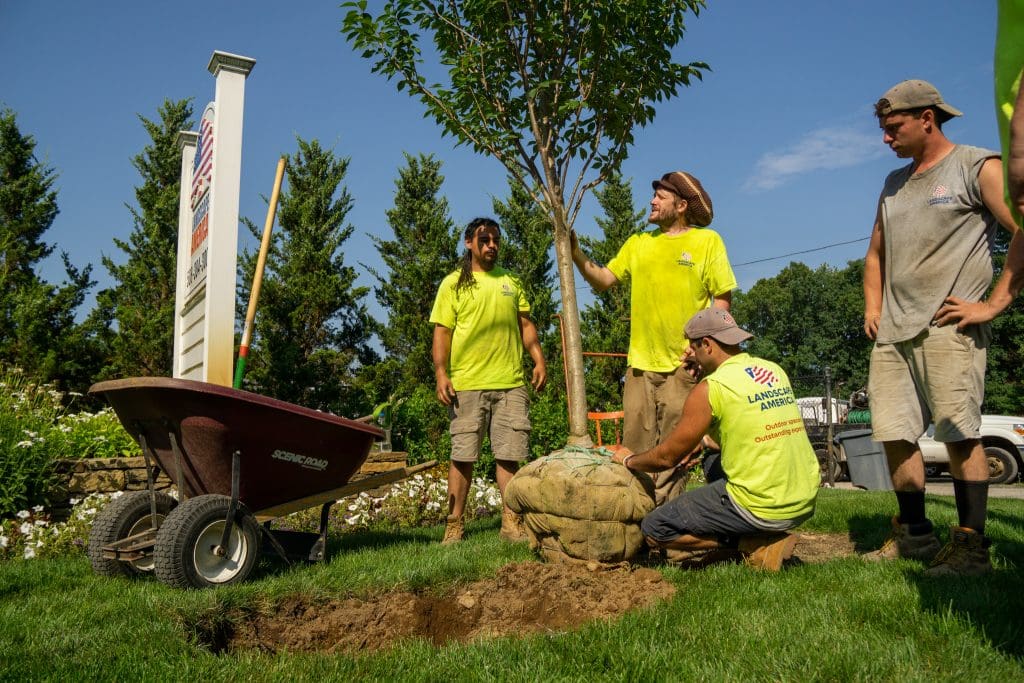
For majority of the business’s existence, residential design-build was their primary service. McDuff says in 2018, it made up 65 percent of the business, but now it is one of their smaller segments.
Over the last three years, they have changed their target market to commercial landscape maintenance and snow clients. Their ideal client is one who lets them take care of their property year-round.
“It was definitely driven mostly from the fact that we were feeling like we were having to just resell the majority of our book of business every year so the recurring revenue was really attractive to us,” McDuff says.
McDuff says they were also starting to feel the pressure of not being able to staff the design-build business that was doing $3.5 million a year.
“It’s such a specialized thing,” McDuff says. “We were trying to find employees that were able to get into our business and work right away doing all the different things like irrigation, lighting, hardscape, softscape, grading, all that sort of stuff. We were trying to find people that were experienced and could do that and we were just striking out.”
He says they realized the maintenance side didn’t require near as much energy to staff or maintain and it was a more predictable business model. He says they decided if they wanted to scale the business, they should invest in that side of the business.
“Even though design-build was my passion and it was fun, it became less fun as we did more of it because of all the issues with staffing and client expectations becoming more and more difficult to manage,” McDuff says. “The pure fact it was such a large book of business for us, it was feeling like we were putting all this energy and time into something that was crazy difficult and then we were neglecting the recurring revenue that was just there every year and was much easier to maintain and much easier to staff.”
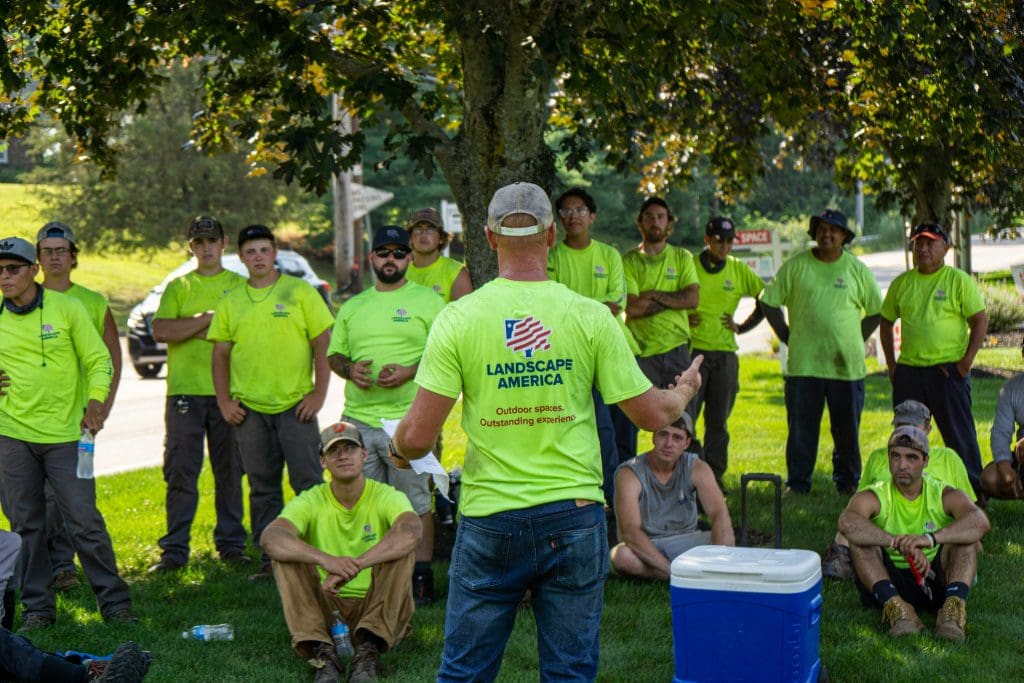
Landscape America still has a residential book of business on the maintenance side and it feeds their design-build and enhancement work. They do have a minimum $6,000 a year requirement for their residential maintenance accounts.
McDuff says they have limited resources and want to make sure their team can fulfill all of their skill sets on each of their accounts so they require their maintenance clients to sign up for a base package that includes all their services. They also expect their clients to do a certain amount of enhancements.
McDuff says they plan to keep their residential side, but they’re not actively trying to grow it like their commercial work.
Landscape America’s most popular service is their snow removal. McDuff says for years it only made up 10 percent of their revenue, and now it’s 30 percent as they’ve put a lot of energy into how they perform that work and take care of their customers.
Keys to Success
McDuff credits Landscape America’s growth to several different elements. One is the hiring of a business developer. He says while they consider their brand and strong marketing their ‘air cover,’ their business developer is their boots on the ground.
“Our business developer’s done a really good job in forging strong relationships with new clients and getting doors open for us so we can bid new work, both in snow and landscape,” McDuff says.
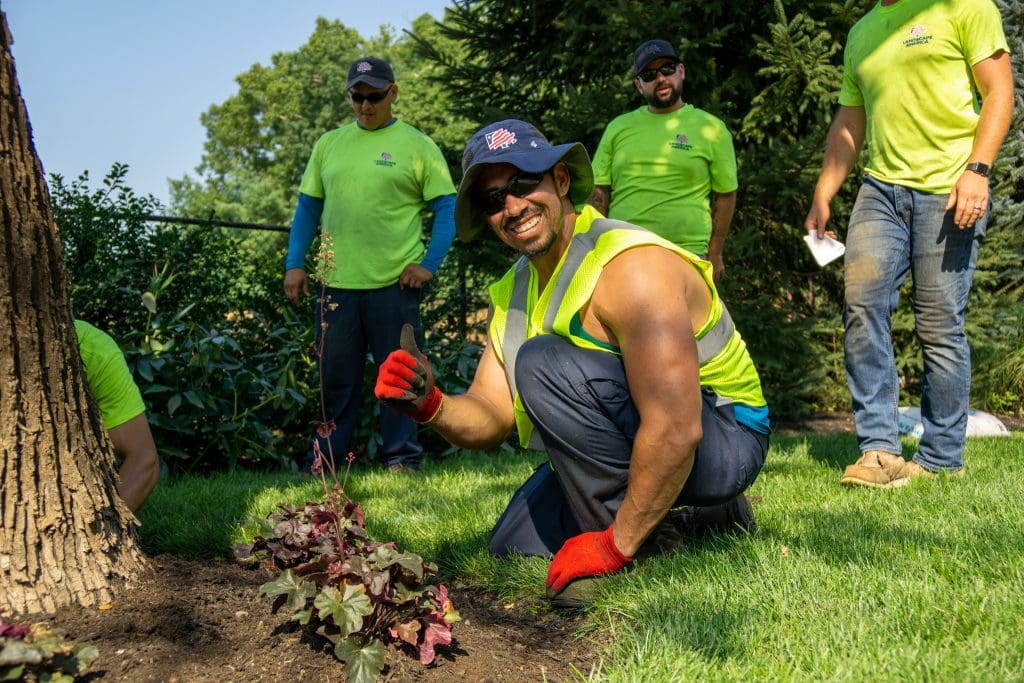
He says they went outside the industry for their business manager, who is actually a childhood friend. McDuff says their business developer’s lack of knowledge of the landscape industry has prevented him from having preconceived notions about certain jobs. Another key to Landscape America’s success is the fact they practice open-book management. They have a forecast meeting every week on both revenue and costs.
“We share that information with our entire team,” McDuff says. “The idea is we try to promote that business is a team sport, and we want every single person on the team to have some skin in the game, and understand how their actions and behaviors affect our gross profit.”
He says they all share in the bonus each quarter based on their gross profit. While open-book management is a financial tool to run the business, McDuff says it goes deeper than that.
“It brings the whole team into the know,” McDuff says. “They feel like they have an understanding of what’s going on, both on the sales and the cost side of things. They feel like they are able to make a little bit of a difference in what happens every day in the business. They can make good decisions, and the business will flourish, or we can have accidents and safety issues and the business will not flourish.”
He says an example of this is how the snow work used to be something the team dreaded, but now they are focused on doing a good job because they know they’ll earn a healthy bonus at the end, as snow removal is one of their most profitable service lines.
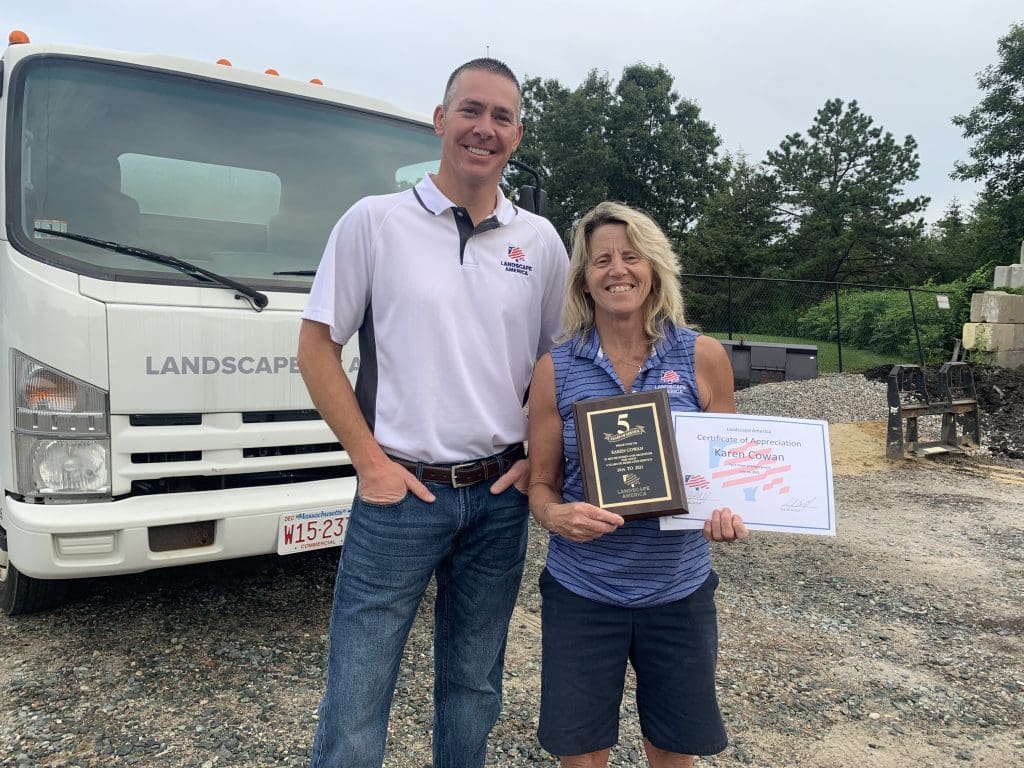
McDuff also notes networking and building a strong group of thought partners in the industry has helped the company grow. Their business coach Dan Foley helped them restructure their org chart, implement open-book management and shift their focus from residential design-build to commercial maintenance.
He says in 2009 he attended GIE and was first exposed to NALP there. He joined right away and then signed up for the Trailblazer program, now known as NAVIGATE. He ended up visiting Trailblazer Nick BiBenedetto’s company, ND Landscaping, in their third year of business.
“I didn’t know what profit was,” McDuff says. “I had no idea. Nick helped us to learn a whole bunch of stuff the day we were up there. He opened up his whole company to us. He showed us how to read a profit and loss. He recommended a bunch of books. We’re really close friends now and I talk to him two, three times a week.”
Since joining NALP, McDuff has attended a number of Field Trips and LANDSCAPES. He says he’s met a lot of his close friends at NALP events and the peer networking has been amazing.
“Any little bit of success we’ve had I can tie it back somehow to NALP because it was so instrumental when we were just young and out there literally mowing lawns and setting bluestone ourselves to now where we’re running this business,” McDuff says. “It’s not big, but it’s not little anymore. It’s really shaped a lot of what we are today.”
Strong Company Culture
Like most lawn and landscape companies, Landscape America has tried almost every tactic available to recruit new employees. However, McDuff says their most effective methods recently have been using an employee referral bonus program and placing yard signs in their customers’ lawns.

The company’s referral bonus program awards the referring employee $100 in cash the day the new employee starts, $200 if they stay for 30 days and $300 if they reach 90 days. McDuff says the key is to announce it in front of the whole staff and make a big deal out of it.
As for the signs, they made up 100 well-branded signs that said “Hard workers wanted” and moved them throughout the towns they served. McDuff says they were able to get fully staffed thanks to the signs generating a lot of publicity.
Landscape America currently employees 50 people on staff and McDuff says their company culture is the main way they retain them. He says they’ve maintained their culture as they’ve grown by hiring based on their core values.
“Our main goal is just to give opportunities to our team so that they can grow,” McDuff says. “That’s why we started the business is so that we could have opportunities and we’ve just passed it down to everyone else in the business to make sure if someone wants to achieve a foreman role, they can.”
The company has a growing org chart that shows team members a path to the position they want. They also host monthly cookouts for the team.
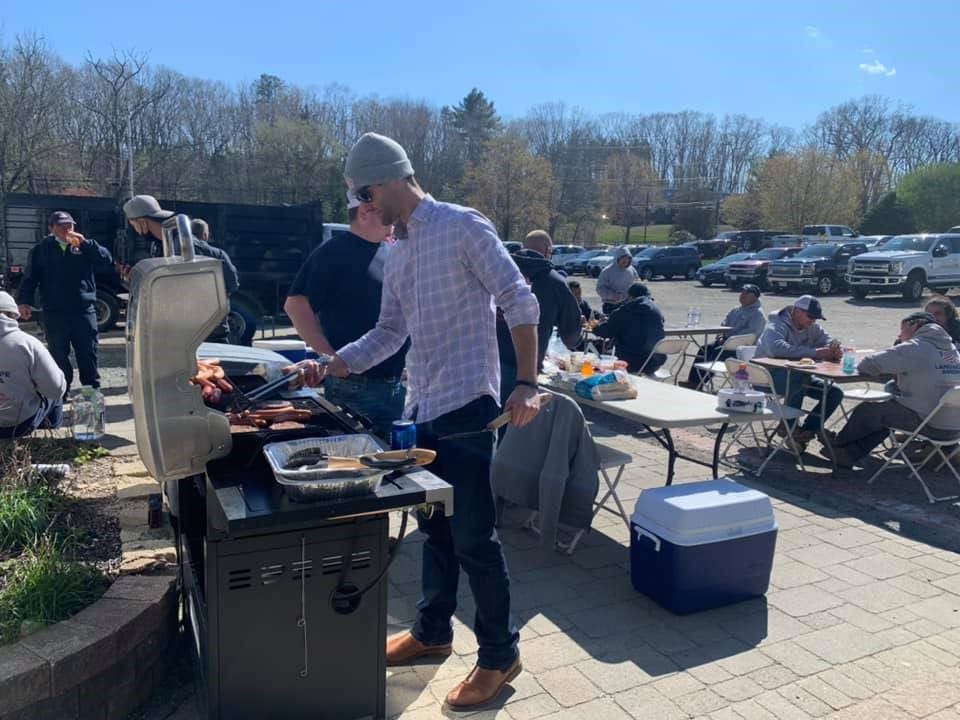
“It’s not just to make burgers and so forth,” McDuff says. “It’s an opportunity for myself, my brother and our other sales and production managers to just mingle with our team, hang out with them, ask questions about their family and not talk about work.”
He says that practicing open-book management has also helped with retention as their employees can see the company’s upward trajectory and they want to be a part of it.
Click here to read more Level Up stories.

